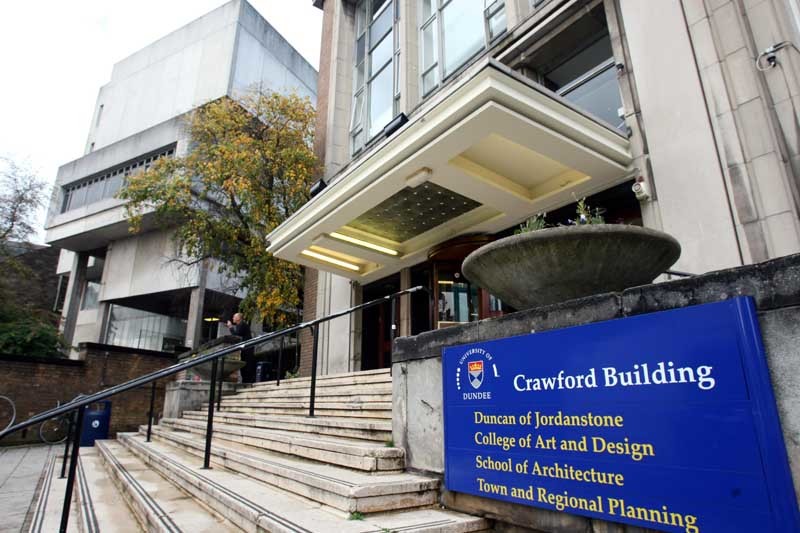Dundee University has made a strong defence of changes to the textiles course at Duncan of Jordanstone, which will see the “weave” discipline discontinued at the end of the next academic year.
The decision has disappointed some in the Scottish crafts industry. James Donald, a former weaving student and lecturer at Duncan of Jordanstone, said, “It is so out of touch with current thinking within the craft industry.”
Professor Georgina Follett, dean of Duncan of Jordanstone and deputy principal of the university, said, “The changes proposed are a result of student choices, which have contributed to an increased curriculum content that now includes stitch, mixed media, knit and print.
“These choices have impacted on the number of students opting to specialise in weave, which is now at an all-time low. This level is unsustainable.
“Students specialising in these other areas will enjoy increased resources as a result of weaving being discontinued.
“This was a difficult choice, made after considerable discussion within the discipline itself and evaluating likely take-up numbers in the future.”
A spokesman for the university said, “Weaving is a resource-intensive skill to teach and the specialist nature of weaving requires a staff-student ratio of 2:1.
“Coupled with the high cost of equipment, a disproportionately high, and growing, percentage of our budget was being absorbed by the relatively small number of students who specialised in weaving.
“This meant that those specialising in printed textiles, mixed media and knit were losing out.
“Students specialising in these areas, which are our particular strengths in terms of textile design, will enjoy increased resources as a result of the discontinuation of weaving.
“This decision affects a small number of the 100 textiles students currently studying at DJCAD. Those in third and fourth year will be able to complete their degree whilst specialising in weaving.
“Of the first year students currently on the general foundation course, none intimated that they planned to specialise in weaving.
“Eight of the 36 second year students said they planned to specialise in weaving.
“This was not an easy decision to make, but we had to look at how our textile design course can best ensure students receive the education they deserve.
“We have spoken to all students who will be affected to discuss their options and will continue to offer them support whether they choose an alternative specialisation or opt to continue their studies elsewhere.Decision finalMr Donald said, “The decision has been made and is final with no room to manoeuvre. Students in second year have just been told ‘no.’
“This is when eight students in second year have indicated they are interested in weaving, more than the current third year and fourth year combined.
“I do not know where they get this ration of 2:1 staff student ratio from. It was never that when I was a student, nor when I was a member of staff there.”
